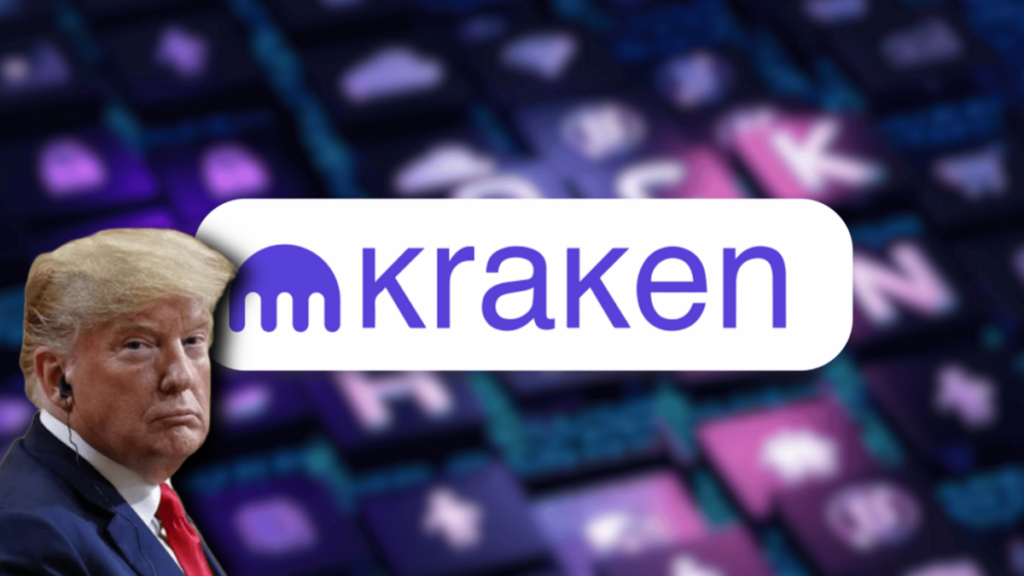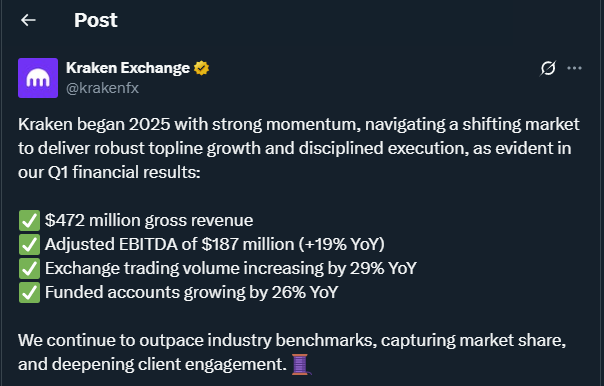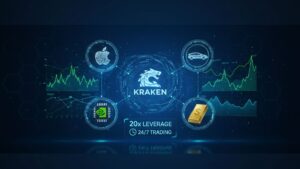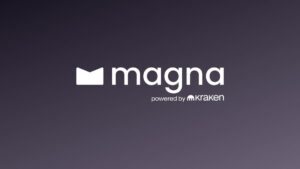TL;DR
- Kraken generated $472 million in gross revenue in Q1 2025, showing strong growth in a volatile market environment.
- The acquisition of NinjaTrader will allow the integration of traditional financial products with its cryptocurrency platform.
- Kraken implemented a “proof of reserves” system that allows clients to independently verify their assets are fully backed.
Kraken, the renowned cryptocurrency exchange platform, achieved $472 million in gross revenue for Q1 2025, despite a challenging economic environment marked by the tariff policies imposed by the Trump administration. This strong financial performance highlights Kraken’s ability to thrive in a volatile market, with a 29% year-over-year growth in trading volume, reflecting both market share expansion and increasing client engagement. Additionally, the company recorded an adjusted EBITDA of $187 million, consolidating its position in the industry as one of the most solid players in the market.
Strengthening Growth with New Acquisitions and Features
Kraken made a significant move by acquiring NinjaTrader, a futures trading and brokerage platform. This acquisition will allow cryptocurrency traders to seamlessly access traditional derivative products, while derivative traders will be able to explore the cryptocurrency market through NinjaTrader. This move positions Kraken as a key player in the convergence of traditional markets and cryptocurrencies, opening up new opportunities for greater integration and growth in the sector. Furthermore, the company has launched Kraken Pay, a payment system that facilitates the transfer of money and cryptocurrencies, and updated its consumer app to make it easier for users to buy various asset classes. These initiatives could be crucial in attracting new users and strengthening Kraken’s long-term customer base.
Proof of Reserves and Transparency in Asset Management
This exchange has taken a transparent approach with its clients by implementing its own “proof of reserves” system, allowing users to independently verify that their assets are fully backed on the blockchain. In an environment where trust is essential, Kraken continues to publish these reports periodically, ensuring clients that their funds are secure. This commitment to transparency sets Kraken apart from many competitors.
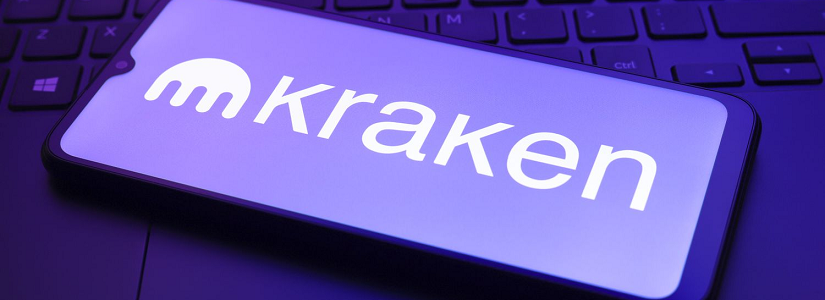
Despite the negative effects of Trump’s tariffs on investor confidence and the market slowdown, Kraken has proven its ability to adapt and grow. This resilience could be key to its planned initial public offering (IPO), which could materialize in early 2026. Kraken’s ongoing success, coupled with its proactive approach, places it in a favorable position to attract investors’ attention, as the platform continues to push the boundaries of innovation and market integration.


